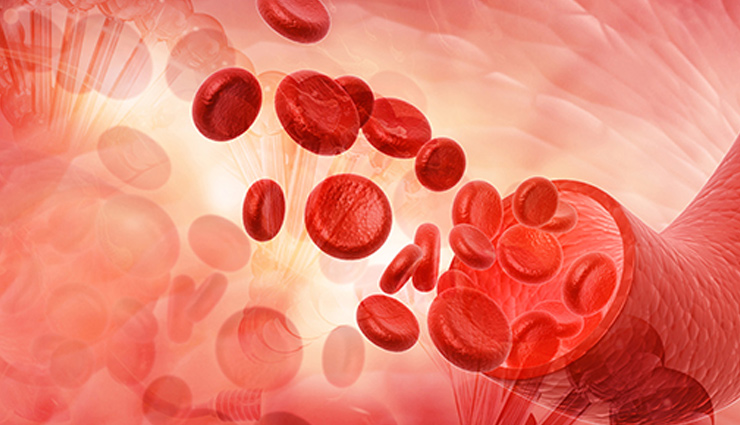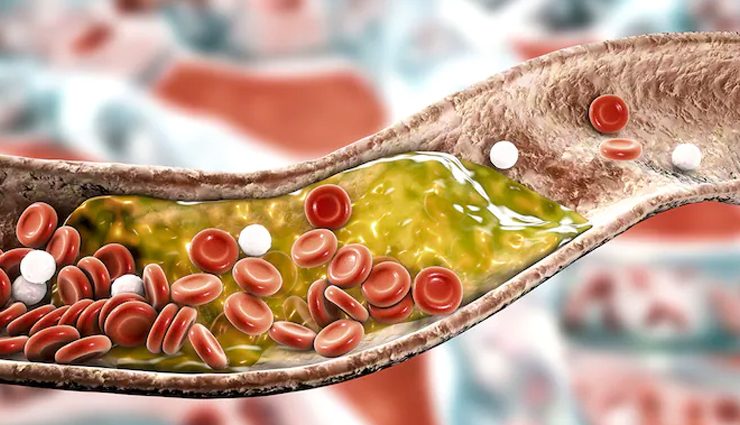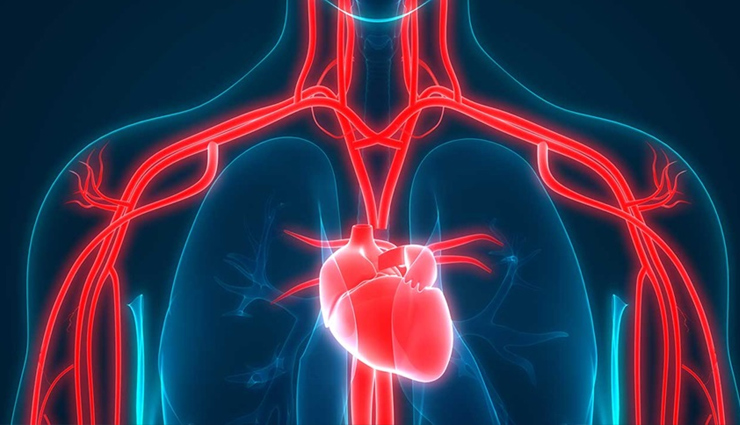- Home›
- Healthy Living›
- 5 Least Known Health Benefits Of Drinking Copper Stored Water
5 Least Known Health Benefits Of Drinking Copper Stored Water
By: Priyanka Maheshwari Wed, 17 May 2023 5:30:21

Copper charged water is a type of water that has been stored in a copper vessel or container, allowing the water to absorb trace amounts of copper ions. Copper is an essential mineral that plays a vital role in various bodily functions. Drinking water that has been in contact with copper is believed to offer several potential health benefits.
Copper charged water is known for its antimicrobial properties, as copper ions have the ability to inhibit the growth of bacteria, viruses, and fungi. This makes it a natural and effective way to purify water and potentially prevent waterborne illnesses.
Furthermore, copper charged water is thought to possess antioxidant properties. Copper acts as a co-factor for several enzymes involved in antioxidant defense mechanisms, helping to neutralize harmful free radicals in the body. This may contribute to reducing oxidative stress and promoting overall well-being.
Some proponents also claim that copper charged water can aid in digestion, boost the immune system, support brain function, and promote healthy skin. However, it's important to note that scientific research on these specific claims is limited, and more studies are needed to validate these potential benefits.
To incorporate copper charged water into your routine, simply store water in a copper vessel overnight or for a recommended duration to allow copper ions to leach into the water. It is generally safe for most people to consume copper charged water in moderation. However, excessive copper intake can lead to adverse effects, so it's essential to follow recommended guidelines and consult with a healthcare professional if you have any specific health concerns or conditions.

# Prevents Anaemia
Copper charged water is not directly linked to preventing anemia. Anemia is a condition characterized by a deficiency in red blood cells or hemoglobin, typically caused by iron deficiency or other factors. While copper does play a role in the production and utilization of iron in the body, it is not a primary nutrient involved in preventing or treating anemia.
Iron is the key mineral for preventing and treating iron-deficiency anemia. It is essential for the production of hemoglobin, which carries oxygen in the blood. Consuming an adequate amount of dietary iron, either from animal or plant sources, is crucial for maintaining healthy iron levels and preventing anemia.
Although copper plays a minor role in iron metabolism, excessive copper intake can actually interfere with iron absorption and lead to iron overload in the body. Therefore, it is important to maintain a balanced intake of copper and other nutrients, including iron, through a varied diet rather than relying solely on copper charged water to prevent anemia.
If you suspect you have anemia or are concerned about your iron levels, it is best to consult with a healthcare professional who can provide appropriate advice, conduct diagnostic tests, and recommend the necessary treatments or dietary modifications.

# Rich in Antioxidants
Copper stored water does not inherently become rich in antioxidants simply by being in contact with copper. While copper does have antioxidant properties, the transfer of significant amounts of copper ions to the water during storage is typically minimal and may not contribute significantly to the overall antioxidant content.
Antioxidants are compounds that help protect cells from damage caused by harmful free radicals in the body. Common dietary sources of antioxidants include fruits, vegetables, nuts, and certain beverages like green tea. These foods and beverages contain a wide range of antioxidants such as vitamins C and E, beta-carotene, and various phytochemicals.
While copper itself has some antioxidant activity, the amount of copper ions released into the water during storage is generally low. The concentration of antioxidants in copper charged water is likely to be minimal compared to other antioxidant-rich foods and beverages. Therefore, it is important to obtain antioxidants primarily from a well-rounded diet that includes a variety of fruits, vegetables, and other nutrient-dense foods.
It's worth noting that copper charged water may have other potential health benefits, as mentioned earlier, such as antimicrobial properties. However, if you are specifically seeking to increase your antioxidant intake, it is advisable to focus on consuming a diverse range of antioxidant-rich foods and beverages rather than relying solely on copper charged water.

# Slows Ageing
The claim that copper stored water slows aging is not substantiated by scientific evidence. While copper does play a role in various physiological processes and has antioxidant properties, there is limited research specifically linking copper charged water to slowing down the aging process.
Aging is a complex biological process influenced by a combination of genetic, environmental, and lifestyle factors. It is primarily driven by a gradual accumulation of cellular damage, oxidative stress, and other molecular changes over time. While antioxidants can help counteract some of the oxidative damage associated with aging, the overall impact of copper charged water on aging is not well-established.
It is important to note that maintaining a balanced diet, regular exercise, protecting the skin from sun damage, and avoiding harmful habits like smoking are widely recognized as important factors in promoting healthy aging. These lifestyle choices, along with a varied and nutrient-rich diet, can contribute to overall well-being and potentially slow down the aging process.

# Reduces Cholesterol
According to a report from the American Cancer Society, copper has been associated with the potential to lower triglyceride and cholesterol levels. Furthermore, copper deficiency during childhood may contribute to hypotension (low blood pressure), while adults with copper deficiency may be at risk of developing hypertension (high blood pressure).

# Protects the Heart
Insufficient copper levels can result in heart muscle dysfunction, causing inadequate blood pumping and an impaired ability to respond to stress. Additionally, copper has been suggested to aid in plaque removal and promote the dilation of blood vessels, thereby enhancing blood flow within the heart.





